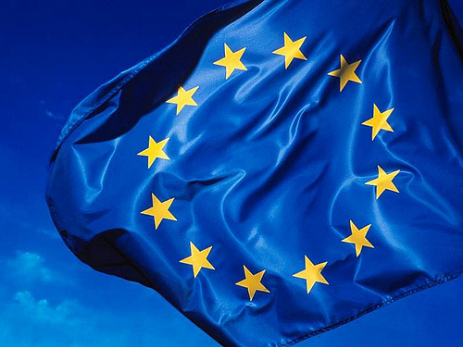According to figures released today as part of the European Commission's annual report on its progress to meeting its Kyoto targets, E.U. greenhouse-gas emissions for 2010 were 15.5 percent below 1990 levels despite economic growth of 41 percent over the same period.
This means the E.U. is well on its way to meeting its emissions targets from the Kyoto treaty — the one Bush Sr. refused to sign — which requires 20 percent cuts in Europe's emissions from 1990 levels by 2020. In fact, the E.U. is likely to overshoot this target, which has inspired some member states, like France, to argue that it should be increased by to 30 percent cuts by 2020.
How did Europe do it? Unlike the U.S., it wasn't just a recession — the E.U. has been reducing its emissions (on purpose!) for years.
E.U. climate change commissioner Connie Hedegaard hailed the report as evidence the E.U. has successfully decoupled emissions from economic growth through the wider use of low carbon technologies.
"The E.U. continued decoupling emissions from GDP during the recession," she said in a statement. "Between 2008 and 2009, emissions fell by 7.1 per cent in the EU-27, much more than the around four per cent contraction in GDP."


